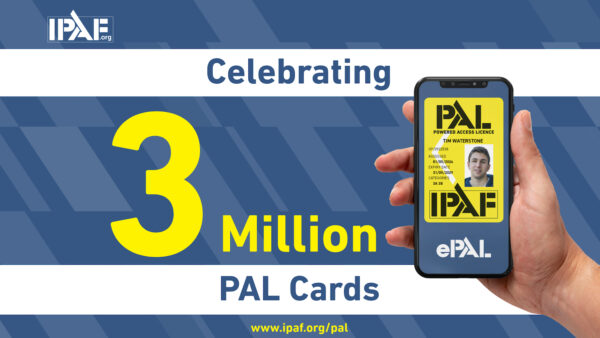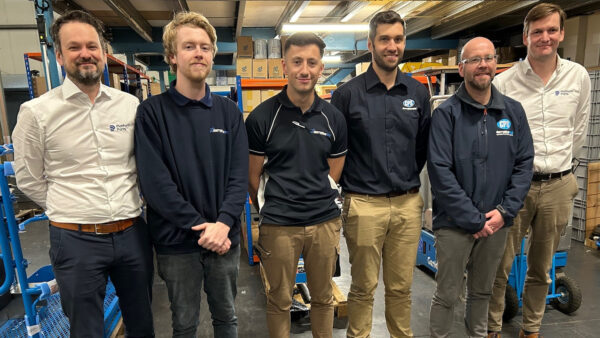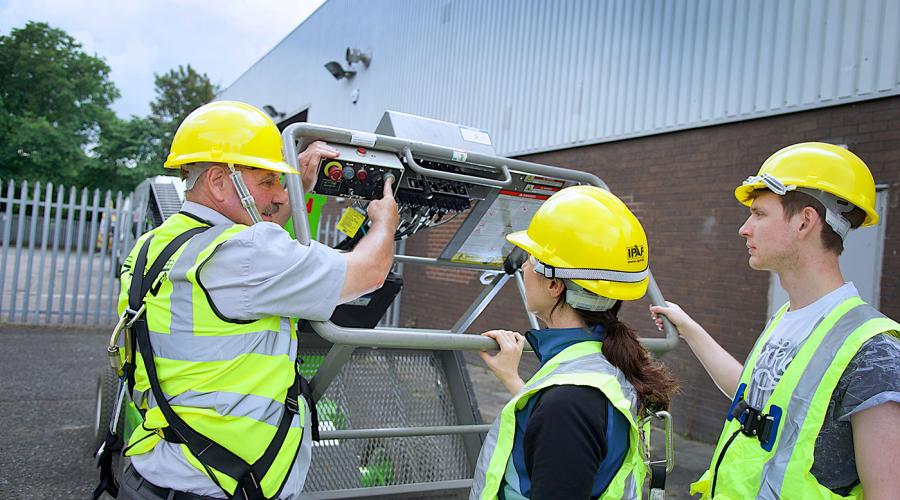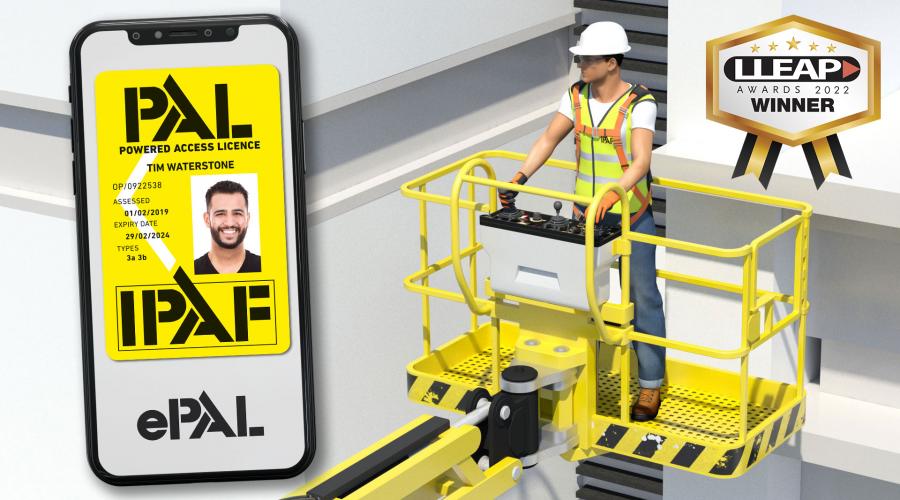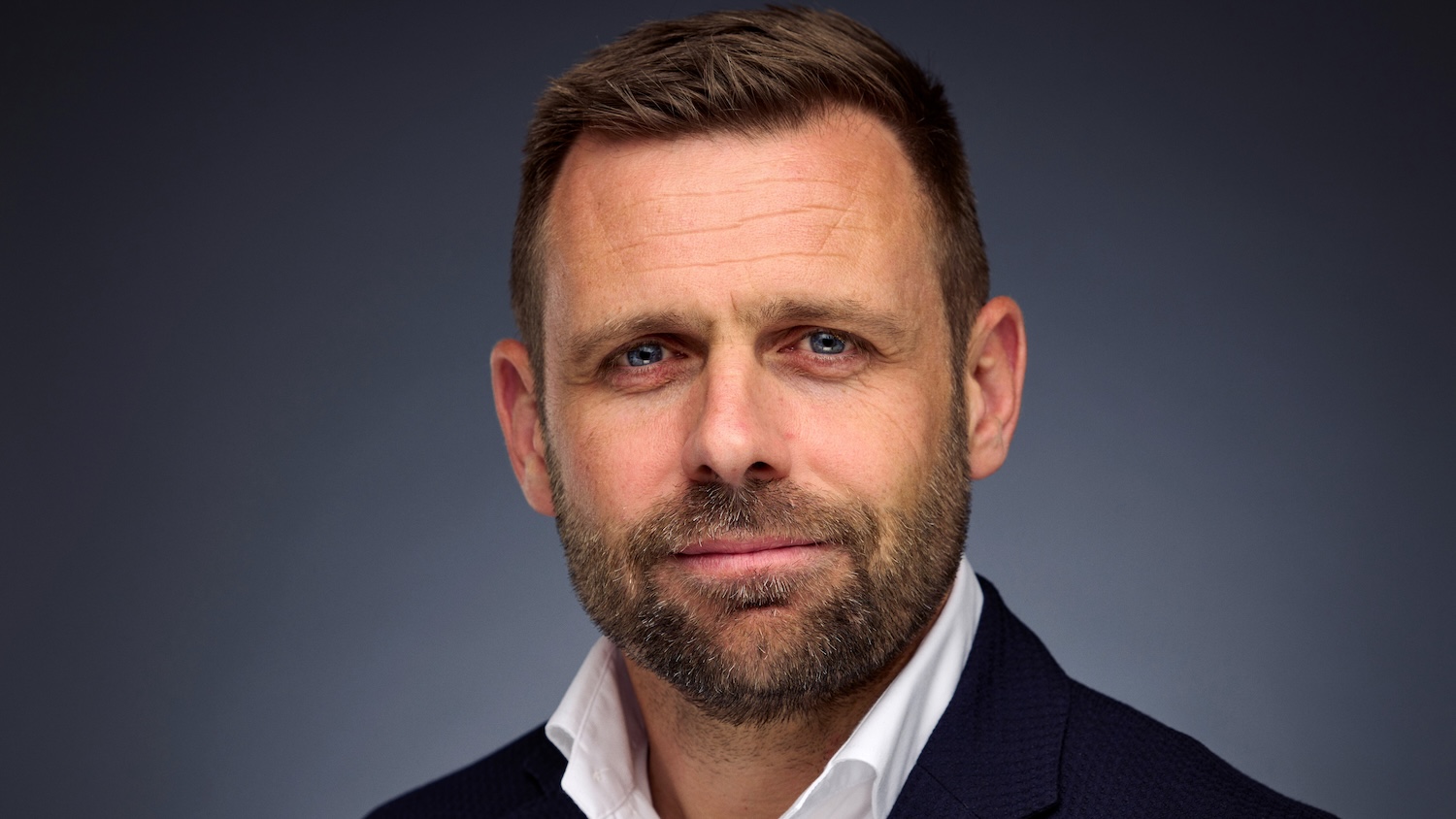
Horizon Platforms’ Ben Hirst tells IPAF’s Powered Access why storytelling is a powerful tool that can have a transformative impact on safety across the industry.
Most powered access professionals can recount an experience of an accident or a close call on site. However, all too often, these stories remain untold.
The launch of IPAF’s #ShareYourStory campaign aims to inspire professionals to share these experiences, including stories of serious incidents, near misses and valuable lessons learned.
Contributors to the campaign have an opportunity to play an essential role in creating safety and training materials that have a global impact.
Ben Hirst, director and founder of Horizon Platforms and chair of IPAF’s UK Country Council, is championing the campaign, having recently shared his own story of a near miss that could have resulted in tragedy.
During IPAF’s Elevation UK event in November 2024, Hirst delivered a compelling presentation and emphasised the potential for storytelling to improve safety, and to support change across the powered access industry.
Inspired by IPAF president Karel Huijser – who discussed the power of storytelling in his inaugural speech – Hirst is now encouraging others across the industry to share their own stories.
“We remember stories in a way that we do not remember data,” he says. “You can give someone hundreds of safety stats, but if they hear one story that makes them feel, they carry that lesson with them. It is the difference between compliance and conviction.
“When someone hears a real person talk about what went wrong – and how it felt – that cuts through and changes behaviour in a way a policy document never could.”
Emphasising the capacity for stories to engage with different audiences, Hirst points to the popularity of documentary series Drive to Survive and Full Swing, which have lifted the lid on the lives of Formula 1 drivers and professional golfers respectively.
“They are essentially telling stories and revealing what goes on behind the scenes in sport. You can see from the ratings how popular these shows are,” he says.
“When you tell a story, it allows people to feel and sense the moment. It evokes emotion. But compare that to reading an accident report. It is full of stats and quotes, but it does not tap into the story. There is zero emotion, which can make it difficult to read and absorb.
You can give someone hundreds of safety stats, but if they hear one story that makes them feel, they carry that lesson with them
“We have an opportunity, as an industry, to share stories about serious incidents or events that could have been catastrophic but weren’t. There are valuable lessons we can all learn.”
Eliminating fear
However, Hirst acknowledges that many individuals and companies are reluctant to share examples of things that have gone wrong, often concerned about reputational damage or potential legal consequences.
“The underlying issue is a general fear that we humans have of admitting a mistake, and how that might be seen as some form of weakness,” he says.
“The truth is the opposite: sharing takes courage. If you focus on how others might learn from your mistake, the fear will fall away.
“Within high-risk industries like powered access, withholding those stories can have real consequences. The reluctance is human, but we need to change the culture – from silence and fear to learning and support.”
Hirst adds: “Any changes within a company’s culture take time, let alone an industry’s culture. It will take a colossal amount of effort. I’m not expecting everything to change overnight.”
Leading role
By encouraging the industry to #ShareYourStory, Hirst hopes to see a fundamental shift in mindset – where safety conversations are real, personal and grounded in experience.
He also believes that industry leaders have a pivotal role to play.
“They need to see and understand the way in which their teams can learn from hearing stories about other organisations,” he explains. “I think we will then start to see a snowball effect where other individuals and companies feel safer to share their experience.
“Someone else’s story might stop your team making the same mistake. And your story might do the same for someone else.”
Despite the common fears around sharing mistakes, Hirst insists the campaign is not about “confessing failure”.
“This is about showing leadership,” he says. “Sharing a story can turn into purpose. It is one of the most generous things a professional can do for their peers and the next generation.”
We know serious incidents are occurring within our industry every year. Where there is evidence of serious incidents, there is undoubtedly a greater volume of near misses – and that’s where the opportunity lies
Call for action
Since the launch of the campaign, Hirst says it has been encouraging to see professionals getting involved and sharing their experiences. However, he admits that more engagement is needed to truly inspire change across the industry.
“Encouraging people to contribute is still a work in progress,” he says.
“We know serious incidents are occurring within our industry every year. Where there is evidence of serious incidents, there is undoubtedly a greater volume of near misses – and that’s where the opportunity lies.
“We know there are a lot of stories out there. Now we have to convince people to stand up and share those stories so we can all learn from them.
“[The campaign] encourages more openness, where teams feel safe to talk about what’s gone wrong, not just what went right.
“Ultimately, we want to save lives – and I believe this culture of storytelling is a powerful route to get there.”
‘You are not alone’
Hirst’s commitment to engaging with professionals across the industry is clear. For anyone anxious about sharing their story, he stresses: “You are not alone – many of us have been in that position.
“My advice is to start with ‘why’. “Why does this story matter? What could someone else learn from it?
“Do not worry about being polished or perfect – just focus on being honest. And remember: you are in control. Share what you are comfortable with, and trust that there is strength in vulnerability.”
• If you share your story with IPAF, you have the option to remain anonymous upon publication. Find more information and contribute to the #ShareYourStory campaign here.






